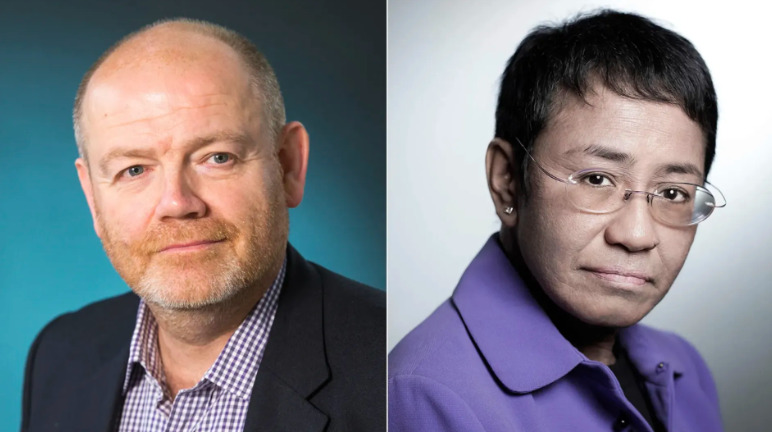
One reason so many are quitting: We want control over our lives again
The pandemic, and the challenges of balancing life and work during it, have stripped us of agency. Resigning is one way of regaining a sense…
Thought Leader: Amy Cuddy

This piece is by WWSG exclusive thought leader, Sara Fischer.
An international fund that supports independent media on Wednesday unveiled an ambitious plan to raise $150 million by mid-2025 to bolster independent media in low and mid-income countries globally over the next three years.
Why it matters: The International Fund for Public Interest Media’s (IFPIM) pitch to leaders in the public and private sectors is that without a vibrant free press, democracy cannot survive.
Catch up quick: IFPIM was launched in 2021 by CNN CEO Mark Thompson and Filipino journalist, Nobel prizewinner and press freedom advocate Maria Ressa.
By the numbers: The fund began deploying grants in 2022 after raising millions.
Driving the news: As part of its ambitious new campaign, IFPIM says it aims to fund 300 media outlets across 50 low- and middle-income countries in the next three years. It hopes to reach an estimated 280 million people with trustworthy, independent journalism.
Between the lines: The fund estimates that the capital it plans to allocate to news organizations between 2026 and 2028, after it concludes its next round of funding, will help unlock $300 million in co-investments from grantees and partners.
The big picture: The gutting of press freedoms is often the first and clearest sign that a democratic country is backsliding.
The bottom line: “In a quicksand world constantly erupting in violence, independent journalism is a lifeline. It is the bedrock of democracy and equitable development,” Ressa said in a statement.
One reason so many are quitting: We want control over our lives again
The pandemic, and the challenges of balancing life and work during it, have stripped us of agency. Resigning is one way of regaining a sense…
Thought Leader: Amy Cuddy
Molly Fletcher: Can drive offset your burnout at work?
This piece is by Molly Fletcher. People assume that drive depletes energy. They believe that level of intensity, focus and daily effort leads to burnout.…
Thought Leader: Molly Fletcher
Paul Nicklen: A Reverence for Nature
Standing in front of any of Canadian photographer Paul Nicklen’s large-scale images in the current exhibition at Hilton Contemporary, one cannot help but be totally…
Thought Leader: Paul Nicklen

